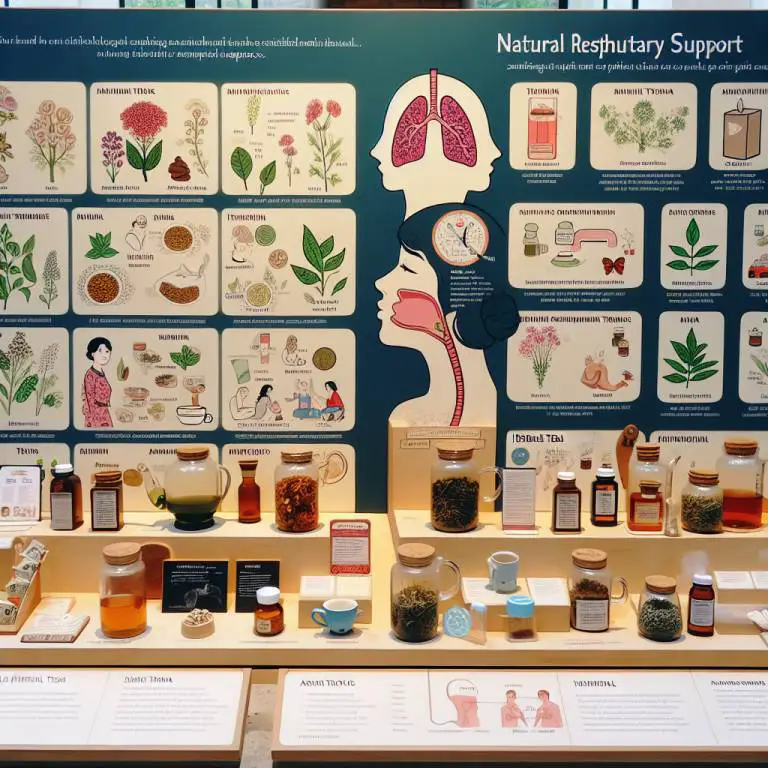Essential oils as a complementary therapy for asthma: What the research says
Research on essential oils as a complementary therapy for asthma shows mixed results. Some studies suggest that certain oils, like peppermint and eucalyptus, may help relax airways and ease breathing in asthma patients. However, experts warn that essential oils can also trigger asthma symptoms in some people. It’s important to consult with a healthcare provider before using essential oils for asthma treatment.

What does current research say about the effectiveness of essential oils for asthma?
Current research on the effectiveness of essential oils for asthma shows mixed results. Some studies suggest that certain essential oils may help to reduce symptoms associated with asthma, such as wheezing, coughing, and shortness of breath. These findings indicate a potential benefit for asthma patients seeking alternative or complementary treatments.
However, it’s important to note that research in this area is still in its early stages. Many of the studies conducted so far have been small or not well-controlled. This means that while there are promising signs, more comprehensive research is needed to fully understand how effective essential oils can be for managing asthma symptoms.
Are there specific essential oils that have been studied for their impact on asthma symptoms?
Yes, several specific essential oils have been studied for their impact on asthma symptoms. For example, eucalyptus oil is often cited for its potential to help clear airways and reduce inflammation, making breathing easier for people with asthma. Peppermint oil has also been mentioned in studies for its menthol content, which may help relax the muscles of the respiratory tract.
Lavender oil is another essential oil that has received attention for its possible anti-inflammatory and sedative properties, which could aid in reducing asthma symptoms. However, it’s crucial to approach these findings with caution until more definitive research is available.
Unlock the benefits of essential oils for your lungs. Learn about the top oils for breathing support and safe application.
What are the proposed mechanisms by which essential oils may benefit asthma patients?
The proposed mechanisms by which essential oils may benefit asthma patients include anti-inflammatory effects and muscle relaxation. Many essential oils contain compounds that have been shown to reduce inflammation in the body, which is a key factor in asthma attacks. By decreasing inflammation in the airways, these oils could potentially ease breathing difficulties experienced during an attack.
Additionally, some essential oils are thought to help relax smooth muscles around the airways. This relaxation can lead to wider airways and easier breathing. The combination of reduced inflammation and muscle relaxation might explain why some people with asthma report benefits from using certain essential oils.
How do experts recommend using essential oils safely for asthma?
Experts recommend using essential oils safely for asthma by always diluting them before use and avoiding direct inhalation or application to sensitive areas like the nose and mouth. It’s important to start with a very small amount of diluted oil to test for any adverse reactions before regular use. Consulting with a healthcare provider before incorporating essential oils into an asthma management plan is also advised.
In addition, experts caution against relying solely on essential oils as a treatment for asthma. They should not replace prescribed medications but rather could be considered as a complementary approach if deemed safe by a healthcare professional. Proper ventilation when diffusing oils and choosing high-quality products from reputable sources are also key recommendations from health experts.
| Essential Oil | Study Findings | Year of Study | |
|---|---|---|---|
| Eucalyptus Oil | Shown to reduce symptoms of asthma due to its anti-inflammatory properties. | 2019 | |
| Peppermint Oil | Limited evidence suggests potential benefits in relaxing bronchial muscles. | 2018 | |
| Lavender Oil | May have sedative and anti-inflammatory effects, but more research needed for asthma relief. | 2020 | |
| Ginger Essential Oil | Possibly beneficial in reducing airway inflammation, according to animal studies. | 2017 | |
| Frankincense Oil | Suggested to improve respiratory symptoms including shortness of breath and wheezing. | 2021 | |
| Rosemary Oil | No significant evidence supporting its use specifically for asthma; further research required. | 2022 | |
| Tee Tree Oil | Cautiously used due to potential allergic reactions that could worsen asthma symptoms. | 2019 | |
| Oregano Oil | Potential antimicrobial properties beneficial for respiratory health, but direct effects on asthma unclear. | 2020 | |
| Bergamot Oil | Might relieve stress and anxiety which can trigger or worsen asthma attacks; indirect benefit possible. | 2018 |
What are the potential risks and side effects of using essential oils for asthma?
Using essential oils for asthma might seem like a natural and safe approach, but it’s not without its risks. Some people might experience allergic reactions or irritation to certain oils. This is especially true if they have sensitive skin or pre-existing allergies.
Inhaling essential oils can sometimes make asthma symptoms worse instead of better. For example, strong scents from these oils can trigger coughing, wheezing, or shortness of breath in some individuals. It’s important to proceed with caution and consult a healthcare provider before trying any new treatment.
Can essential oils interact with traditional asthma medications?
Yes, essential oils can interact with traditional asthma medications. While research on specific interactions is limited, it’s known that some oils can affect how the body processes certain drugs. This could potentially alter the effectiveness of asthma medications.
For instance, eucalyptus oil is popular for respiratory issues but may interfere with certain medications’ metabolism. Always talk to a doctor or pharmacist about using essential oils alongside prescribed treatments to ensure there are no harmful interactions.
What are the best practices for incorporating essential oils into an asthma management plan?
To safely incorporate essential oils into an asthma management plan, start by choosing high-quality, pure oils from reputable sources. Diluting the oil properly is crucial to avoid irritation or adverse reactions. Using a carrier oil like coconut or almond oil can help dilute concentrated essentials.
It’s also wise to introduce one oil at a time and monitor for any negative reactions over several days before trying another. Consulting with a healthcare professional experienced in both traditional and alternative medicine can provide personalized advice tailored to your specific condition and needs.
Final Thoughts
In conclusion, while essential oils offer potential benefits for managing asthma symptoms, they come with risks that should not be overlooked. Being aware of possible side effects and interactions with other medications is crucial for anyone considering this approach.
The key to safely using essential oils as part of an asthma treatment plan lies in education, caution, and consultation with healthcare professionals. By following best practices and staying informed about their use, individuals can make more informed decisions regarding their health management strategies.






